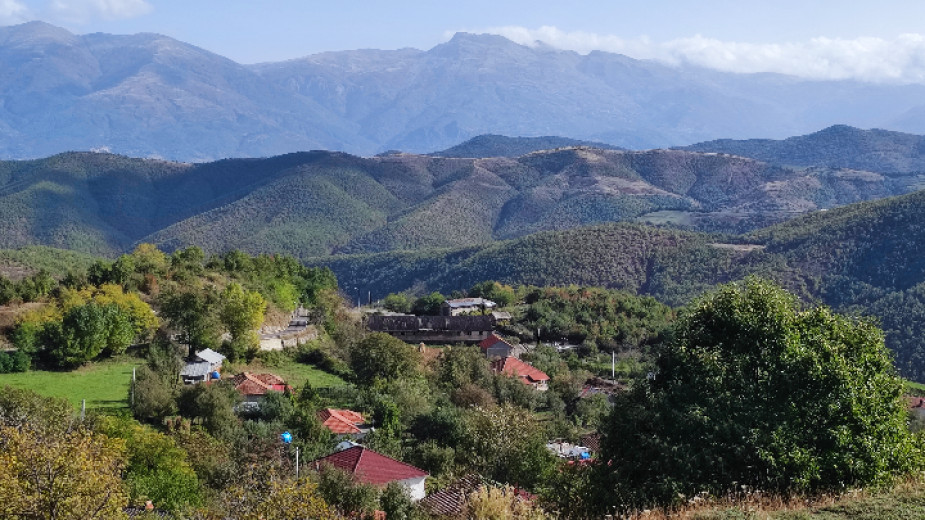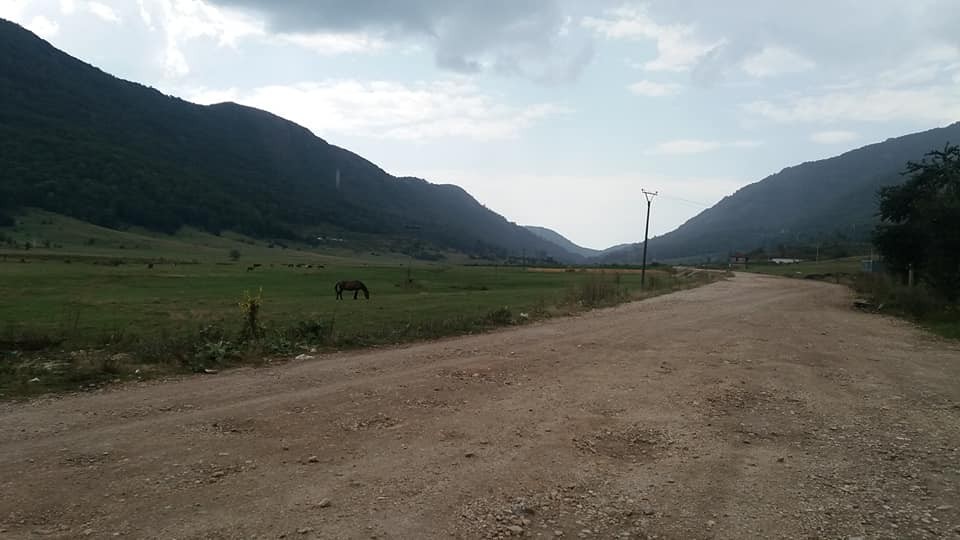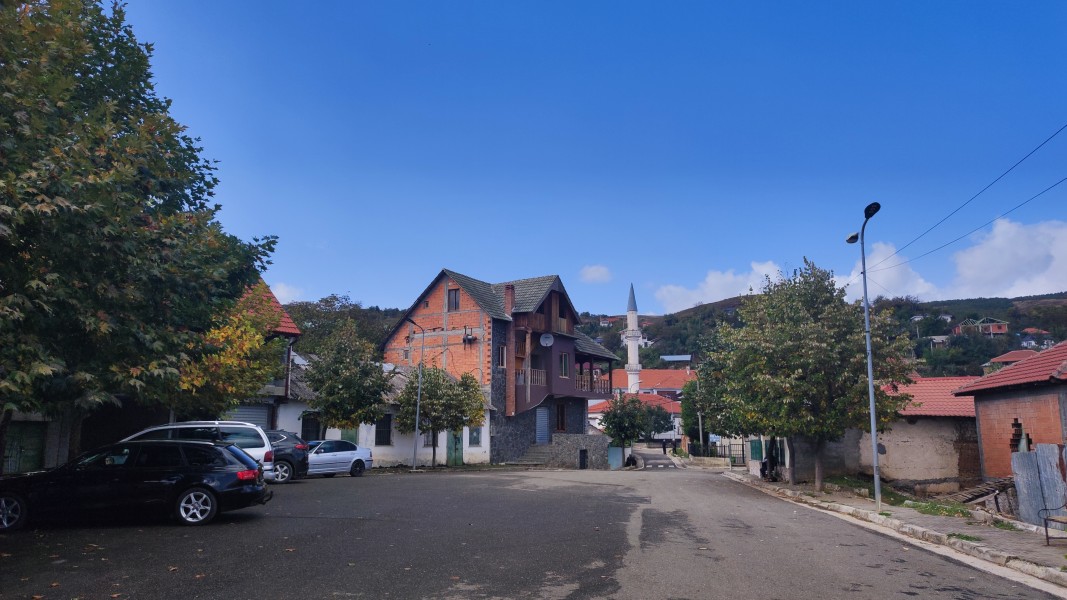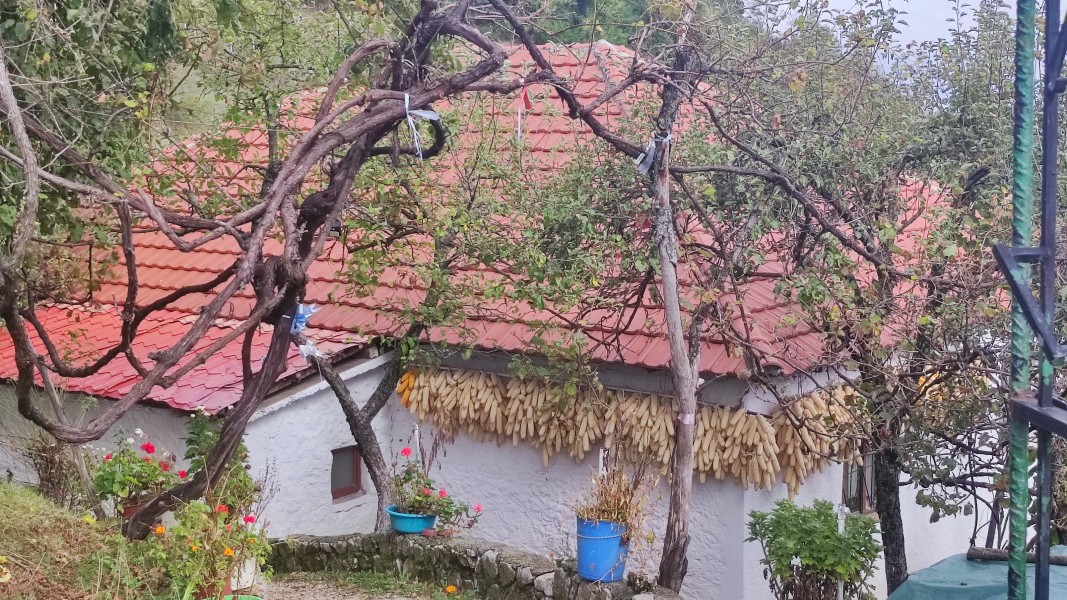 7
7
The villages of the Bulgarians from the historical geographic region of Golo Brdo lie 160 kms. East of the Albanian capital Tirana, and some 10 kms. Southwest of the town of Debar in North Macedonia. The villages fall within the bounds of the Albanian municipalities Librazhd and Bulqizë. There are around 6,000 people living there now, but once the population was triple that number. The difficult life and the lack of jobs have driven the people here to migrate to the big cities in Albania – Tirana, Elbasan and Durres, but mostly they emigrate to Western Europe.
During our visit to Albania in 2023, our team reached the village of Golemo Ostreni. The road leading up to it is just 13 kms. long, but the rough terrain and the gravel road surface make it seem double that distance. There is just one very short section with asphalt. 
The majority of the Bulgarian population in Golo Brdo are Muslim. The Christian past is discernible in the names of some of the old monuments and of some localities. For example, the square in Golemo Ostreni is called “Church”. While the water supply and sewerage network was being laid the remains were found there of an old cemetery and a Christian church. 
Our guide to the village is Razi Rama. For twelve whole years he has been mayor of Golemo Ostreni, and is now a respected man and chairman of the ethno-cultural and sporting association Golo Brdo.
“Golo Brdo is a region with 26 villages, and 80% of the people living in them speak Bulgarian. How this language has survived here, it is up to historians to say. In the time of the communist dictator Enver Hoxha, we were pushed to speak only Albanian. But to this day people speak the Bulgarian language at home. Albanian is learnt at school. As to the Bulgarians in Golo Brdo, I can say that since 2017, when Albania recognized the Bulgarian national minority, people feel freer to say who they are. We had a census of the population recently and, according to preliminary information, a large part of the people living in Golo Brdo identify as Bulgarian.”
Razi Rama says that several hundred of the inhabitants of Golo Brdo have received Bulgarian citizenship. Others have obtained their education in Bulgaria and have made a name for themselves in Albania as doctors or engineers. What do people in Golo Brdo do for a living?
“The Golo Brdo traditions are in construction,” explains Razi Rama. “For centuries it has been the main occupation and means of livelihood here. Many are still engaged in construction somewhere in Albania or abroad. There is no major construction site in the country in which people from Golo Brdo have not been engaged. Many people from Golo Brdo work in Germany, the Netherlands, Switzerland, Italy.”
Asked whether it is difficult to preserve the Bulgarians spirit in these parts of Albania, Razi Rama says that old traditions are respected, and that people speak the old language in their homes as well as outside them, and that this keeps their Bulgarian identity alive. And it has been a long time since they have been afraid to state their ethnic identity. But there is no Bulgarian school as yet.
“There were discussions with the Bulgarian Ministry of Education about opening Sunday schools in Trebisht and Golemo Ostreni but that is still just a project.”
The ethno-cultural association Golo Brdo, whose chairman is Razi Rama, was founded in 2015 and endeavours to keep the Bulgarian spirit and traditions alive. To this day wrestler fights and ethno weddings are held in high esteem.
“Every third Friday of May we organize wrestler fights, and people from the neighbouring villages, but also from all over Albania and from North Macedonia come here to see them. At the weddings here, in Golo Brdo, there is wrestling too and other contests, but this tradition is no longer practiced, because many people from these parts migrated to the cities or to other countries. In Golo Brdo there are about 10-12 different kinds of traditional wedding costumes. And each village has its own traditional wear. To preserve that we want to set up an ethnographic museum where we can put all of these authentic national costumes on display.”
By Kostandina Belo, Krasimir Martinov
Translated and posted by Milena Dayhnova
Photos: Krasimir Martinov, Facebook/Ostreni I Madh Dibra, facebook.com/Gollobord
The survival of millions of people around the world, living in conditions of war, hunger, disease and immense despair, is at stake every day. We often approach immigrants from such countries with hostility rather than understanding. What they have..
Modernizing critical thinking skills, fact-checking skills and media literacy are essential for society, especially for young people in Bulgaria - the country with one of the lowest media literacy indices in the EU, reports the educational platform..
The residents of Pleven (Central North Bulgaria) will bid farewell to 2024 with a Christmas Town and meetings with Santa Claus. This year's festive program of the local municipality will start on December 2 with the Christmas tree lighting ceremony at..
The village of Zmeyovo near the town of Stara Zagora is celebrating today, December 21, its traditional Festival of Pelin Wine. According to an..
Each piece evokes warmth and nostalgia because each is handmade and unique. The silvery reflections on the glass baubles take us back to childhood, when..
The making of knitted products is a traditional craft that deserves a revival and a new life, believes Alexandrina Pandurska, known for her numerous..

+359 2 9336 661
